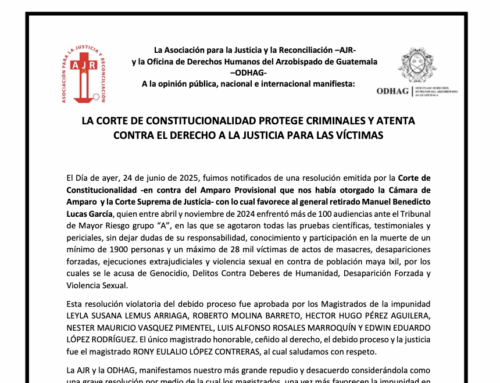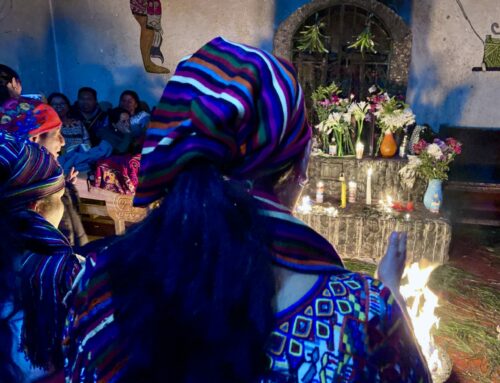
July 28, 2021
Contact: Claire Bransky, claire[at]nisgua.org
Today, a broad coalition of Central and North American organizations delivered a petition with more than 1300 signatures to the State Department, the Department of Homeland Security, and the U.S. Congress. The petition calls for an end to expulsions of asylum seekers under Title 42 and deportations during the pandemic, policies that disproportionately impact Indigenous and Black migrants. Additionally, it demands protections for Indigenous migrants, including:
- Require that CBP, BP, and ICE document Indigenous identity and language at first contact with migrants at the border, and ensure rigorous interpretation and translation to Indigenous languages at every stage in the immigration processes,
- Rigorously include established Indigenous leaders and groups in all consultation and decision-making spaces related to migration,
- Create an Indigenous human rights legal framework and agency-level protocols to enforce it,
- Recognize Indigenous peoples’ rights and governance structures as legitimate and sovereign,
- Rollback Trump-era policies that limit the refugee definition and restrict asylum eligibility, which impact Indigenous women and families,
- Investigate the involuntary and uninformed sterilization of women in detention and identify Indigenous survivors among them.
Title 42 is part of a public health law that the Trump administration weaponized to block access to asylum along the U.S. southern border. Since March of 2020, it has been used to expel most arriving asylum seekers back to their countries of origin or to Mexico, without being afforded an opportunity to seek protection. Six months in, the Biden administration has continued implementing this policy that directly endangers those who we are meant to protect, in violation of U.S. laws and treaties.
“There are various root causes of migration including historical territorial dispossession and land displacement, structural and state-sponsored violence, and corruption and impunity, all which contribute to poverty, hunger and climate change,” says Dr. Giovanni Batz (Maya K’iche’). “Indigenous peoples often confront discrimination and racism on their route to the U.S. through Mexico, especially if they speak an Indigenous language as there remains scarce resources for interpretation and translation, thus hindering their ability to adequately access their rights and legal protections such as seeking asylum. Indigenous leaders and communities have proposed solutions to deter migration and need to be consulted. The militarization of borders, criminalization of migrants, and massive deportations and expulsions through Title 42 have only exacerbated an already dire situation and must end.”






Leave A Comment